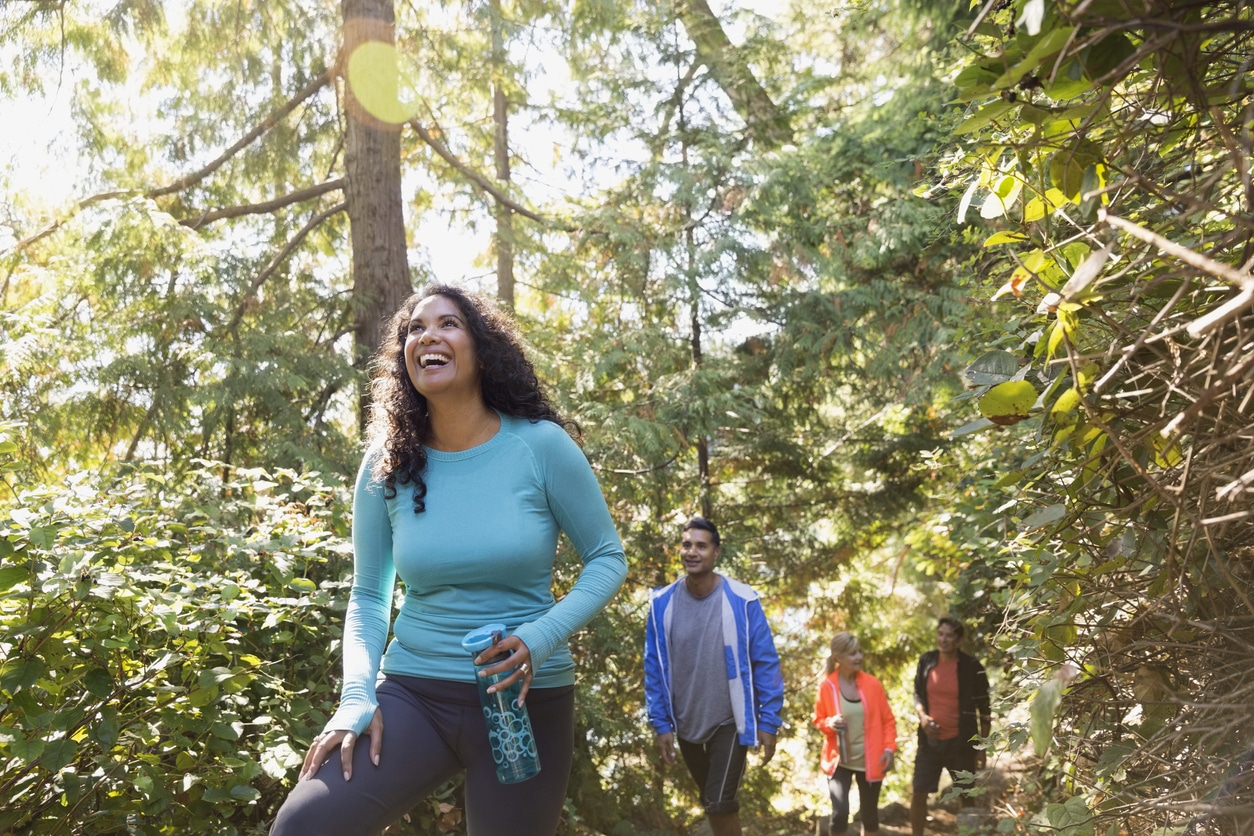Whether biking along the road or hiking up Van Bibber Creek Trail to get a view of the mountains, exercising outdoors is a great way to enjoy the warm summer days. Knowing how to protect your hearing and accommodate for hearing loss will help you have a fun and stress-free outdoor workout.
Let’s look at some simple ways to protect your hearing while exercising outdoors.
Wear a Sweatband

Exercising, especially in the hot sun, can cause sweat to drip down to the ears. Wearing a sweatband will help prevent excess sweat and dirt from entering the ear canal. If you prefer not to wear a sweatband, consider carrying a towel to dry off your face and hair periodically.
Wear Earplugs
Wearing earplugs is especially important while swimming. Without earplugs, water can get trapped in the ear canal, leading to an infection called swimmer’s ear. While swimmer’s ear is generally mild, frequent or severe cases of the infection can lead to temporary or permanent hearing loss. Remember to wear earplugs while swimming and always see a doctor if you have symptoms of swimmer’s ear, which may include but are not limited to:
- Itching in the ear canal
- Redness
- Fluid drainage from the ear canal
- Discomfort
Turn Down the Music
Approximately 17% of adults (26 million) have suffered permanent damage to their hearing from excessive noise exposure. While listening to music during your workout can help pass the time and make it more fun, too high of a volume can damage your hearing. The Centers for Disease Control lists 70 decibels as the beginning threshold for hearing damage. Try to keep your music below 70 decibels to help prevent damage and consider opting for a music-free workout every once in a while to give your ears a break.
Protect Your Hearing Aids
Hearing aids help keep you more aware of your surroundings by amplifying speech sounds and suppressing unnecessary auditory information. They can be a great addition to an outdoor workout, and knowing how to keep them safe will ensure you can continue enjoying their benefits. Protect your devices by:
- Avoiding the heat. Excessive heat can negatively impact your health and deteriorate the materials and technology of your devices. Monitor the heat outdoors and consider whether the temperature is safe for you and your hearing aids.
- Avoiding contact with water. Keep your hearing aids dry by removing them if you are coming into contact with any water.
Following these tips while you exercise will help keep your ears and hearing aids healthy. Contact Advantage ENT & Audiology today to discuss hearing protection with one of our trusted audiologists.